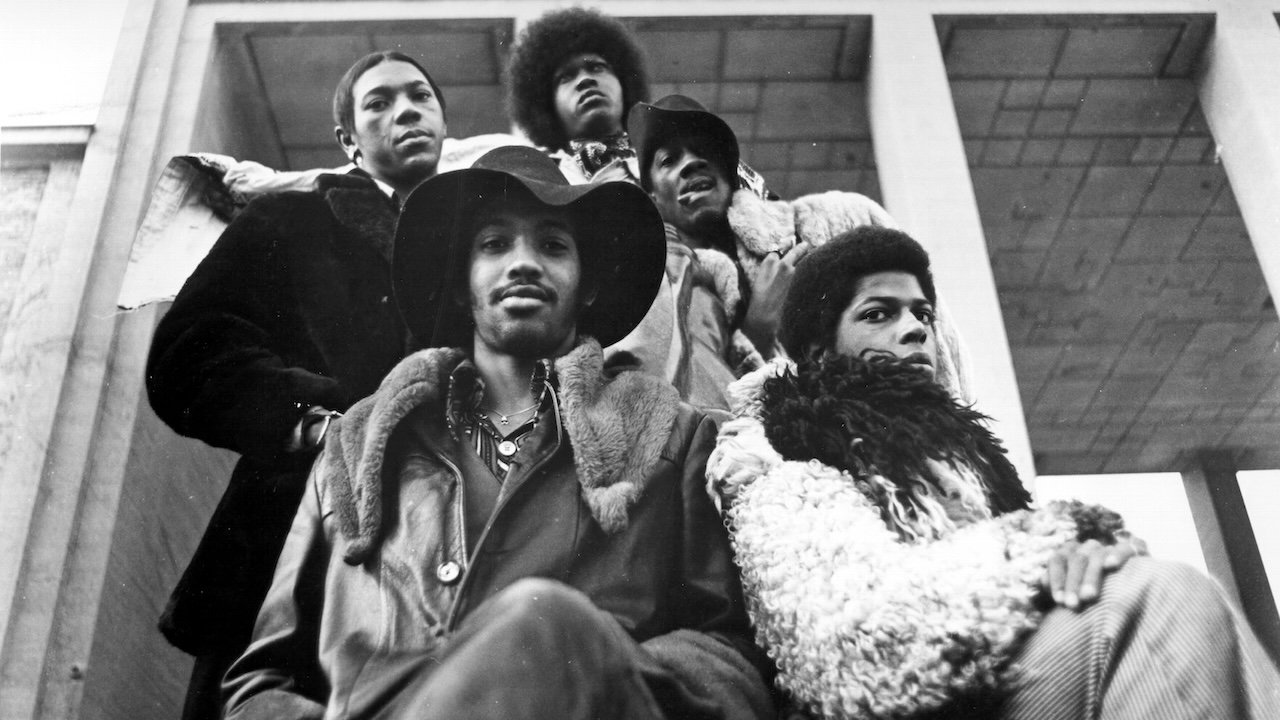“I was falling out of love with music. Playing with Elton John woke me from my slumber. I got blisters every night because it was fun again!” Matt Bissonette’s “dumb-guy” approach to bass has taken him round the world with pop and rock royalty
Still buzzed about his excessive ’80s rigs and five-string instruments, the session bass hero explains how to work with David Lee Roth, Joe Satriani, Jason Becker and others, his big-fun, big-paying Friends TV gig, and the discovery that’s making him a better player
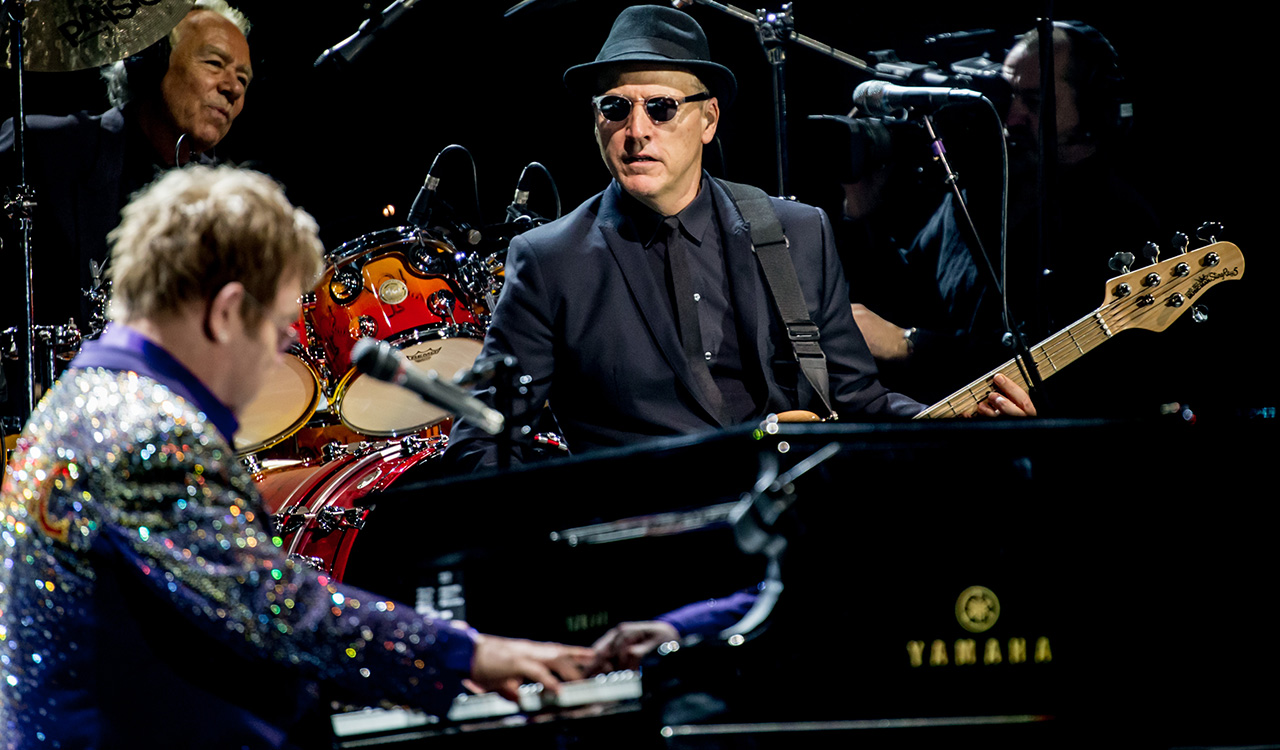
All the latest guitar news, interviews, lessons, reviews, deals and more, direct to your inbox!
You are now subscribed
Your newsletter sign-up was successful
Despite his amazing versatility, Matt Bissonette struggles to move on from seeing The Beatles in 1966, when he was five years old, and being inspired – like many others – by Paul McCartney’s bass playing.
“You can never take the Paul out of the bass,” he says. “I literally have to fight myself from playing Paul’s licks on sessions. And when I write songs, I have to keep an eye on ripping off a Beatles motif!”
Aside from Macca, it was Bissonette’s parents who kicked off his musical life. “To be totally honest, my mom and dad picked out the bass for me. One day I went to the car and there was a bass in the trunk. I pulled it out and went into the basement in Detroit with my brother,” he says. “We played Smoke on the Water for eight hours.”
He continues: “Within the first five minutes I realized that the bass wasn’t playing the cool intro; it was the guitar. But my brother said, ‘No! You’re the guy that pulses the eighth notes.’
“We listened on the record player, and it hit me that I really liked that. I started with ‘dumb guy’ eighth notes and I’ve been ‘dumb guying’ ever since!”
Bissonette – who’s worked with David Lee Roth, Joe Satriani, Brian Wilson, Peter Frampton and Elton John – is a bass heavyweight, but he keeps it simple. “The song dictates the bass movement, and how much freedom they give me,” he says. “I start with the simplest approach and go from there.
“The key is trying to get inside the head of the artist, knowing the music they’ve already recorded and adapting to that, but doing your own thing. That’s why they called you in the first place.”
All the latest guitar news, interviews, lessons, reviews, deals and more, direct to your inbox!
He admits that anyone looking to get into his line of work will find it less easy, and less financially rewarding, than he did. “Learn as many skills as possible,” is his advice. “Sing, write, produce, and learn a software program to record on. I think it’s the only way to improve your odds.”
What kicked off III, your new album with The Squirts?
“The album was put together during Covid. We were locked away in our home studios, so we figured we should get off our duffs and do another record. George Bernhardt and I are used to sending files back and forth. He’d bounce an idea and I’d write lyrics.
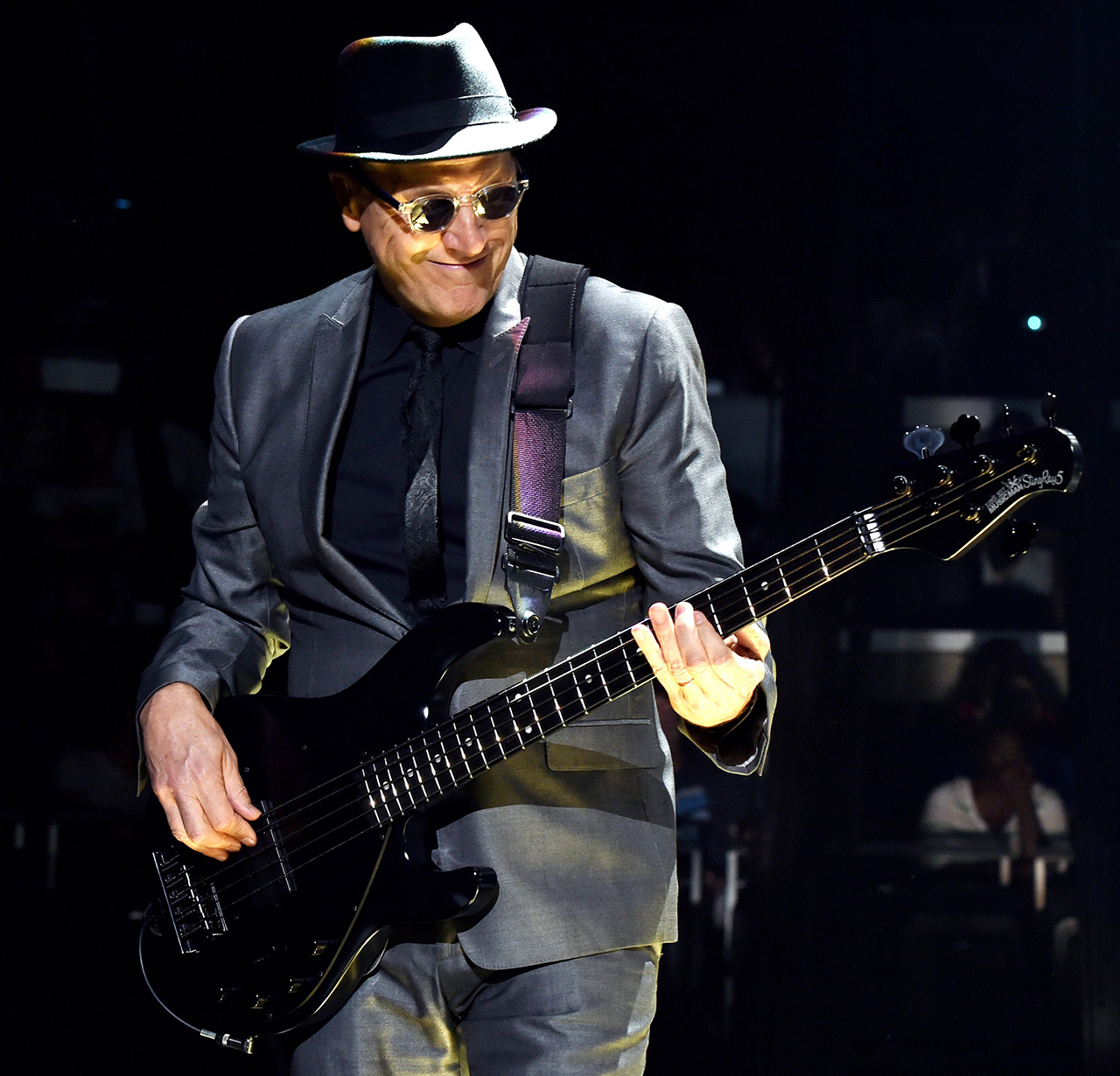
“Then I’d write something and send it to him, and he’d make it better. Rodger Carter, our drummer, would add different sections. It was a pretty easy process even though we weren’t in the same room.”
The Squirts originated as the backing band for Rick Springfield, right?
“We were Rick’s rhythm section for about 10 years, and Rick and I were writing together for his solo albums. We’d done a couple of Squirts CDs before then, and he really liked them. It kind of steamrolled into Rick and I doing three of his solo albums together after that.”
How helpful was he?
“Rick was awesome about it from the very start. One day, in an airport, we asked him if we could open up for his shows. We dangled the idea that it would sound out the PA so it would be that much better.
“He thought it was a great idea – he let us open up for about seven years. He never blinked an eye when we asked if we could sell CDs, T-shirts and hats. We were double-dipping there for a long time. It was great!”
What was it like replacing Billy Sheehan in David Lee Roth’s band?
“At first it was terrifying! Billy is an amazing player so I didn’t even try to play like him. I just tried to get as close as I could to some of his riffs from a different angle, and it seemed to work.
“It’s always hard taking someone’s place like that. You have to dig deep and hope for the best. You have to realize that not everybody is going to love the way you play, but such is life in general. After I figured that out, it seemed to get a lot easier!”
Dave Lee Roth just let us run wild… Joe Satriani knows exactly what he wants
What gear helped you follow Billy and Michael Anthony into David’s orbit?
“I had the typical Bradshaw monster pedalboard rig like everybody was using back then – tons of distortion, reverbs and delays. We all had mobile studios that were six foot tall that we’d bring to our hotel rooms to write songs. It was truly ’80s excess!
“I still think the greatest bass tone for that kind of gig is when you go straight into an amp. Sometimes all the fluff can get washed away in a big room. Dave was always really cool and supportive, and he was a blast to work with – the ultimate entertainer!”
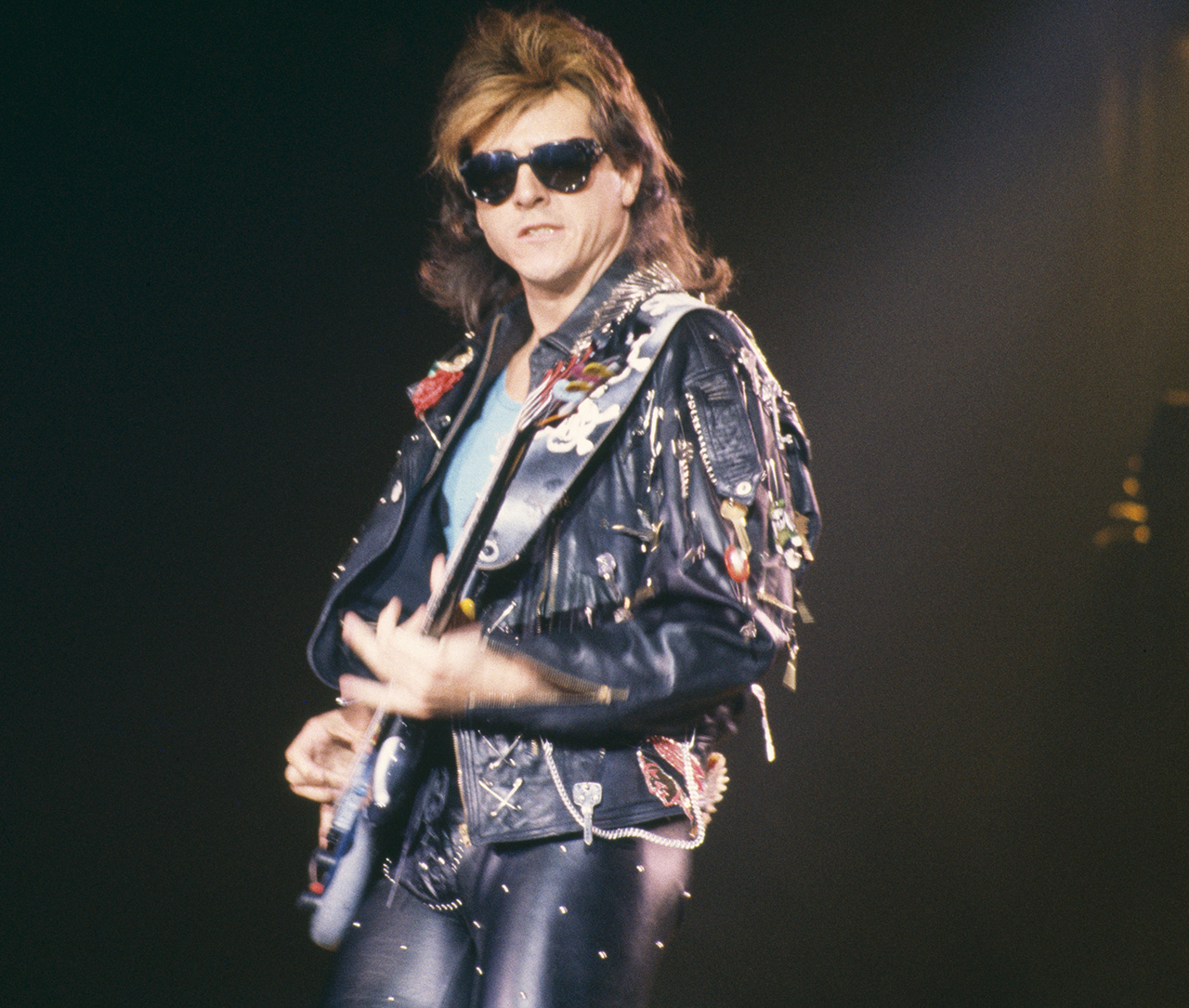
What are your memories of recording with Jason Becker?
“Jason will always be a great friend. He was the young gunslinger that came into town and blew everybody away. We used to play catch with the football in Dave's backyard on breaks from rehearsing.
“I remember one day he felt a pinch on his leg, and it continued to get worse. He struggled through the recording process, trying to figure out what was going on. He’s an amazing person and he’s still doing amazing music with the help of his parents and all his friends. What a talented guy.”
Did recording with Jason help prepare you for Joe Satriani?
“When you’re playing with a virtuoso like Joe, Jason, or Steve Vai, someone has to be the solid guy laying down a foundation for everyone. There are moments where you can stick your head out and play something, but I always try to support whoever I'm working with.
“And with that much guitar action going on, I figured the best thing was to keep it simple and let them run wild. Sometimes, the more you play, the more cluttered it gets – especially when there’s additional rhythm guitars and sounds.”
How did David’s expectations differ from Joe’s?
“Dave would have ideas and certain things that he wanted, but he basically just let us run wild. He also knew what he liked, so when things went off the rails he’d always bring it back to the simplest idea – a trait I respect from any songwriter.
“Joe knows exactly what he wants from a bass player. He plays bass really well himself, so a lot of times you’re emulating what he played on demos. He lets you do whatever you wanna do when the red light goes on, but when something is good to start with, you don’t want to veer too much off of it.
Never in a million years did I think those Friends sessions would be the highest-paying gig I’ve ever had
Did Joe like you to use specific gear?
“He had this amazing ‘60s Fender P-Bass that he used on his demos, and it sounded so good that we used it on a lot of songs. Sometimes, I’d use my Rickenbacker, Fender Jazz Bass, or one of my own P-Basses. Those basses sounded massive with a big SVT mic’d up and blended.
“Sometimes we’d add a touch of distortion; but again, we found that the biggest, most massive straight tone always filled up the tracks best. That was my sound in the late ’80s and ’90s, then the early 2000s when I started working with Joe again. It’s that ‘if it's not broken, don't fix it’ approach.”
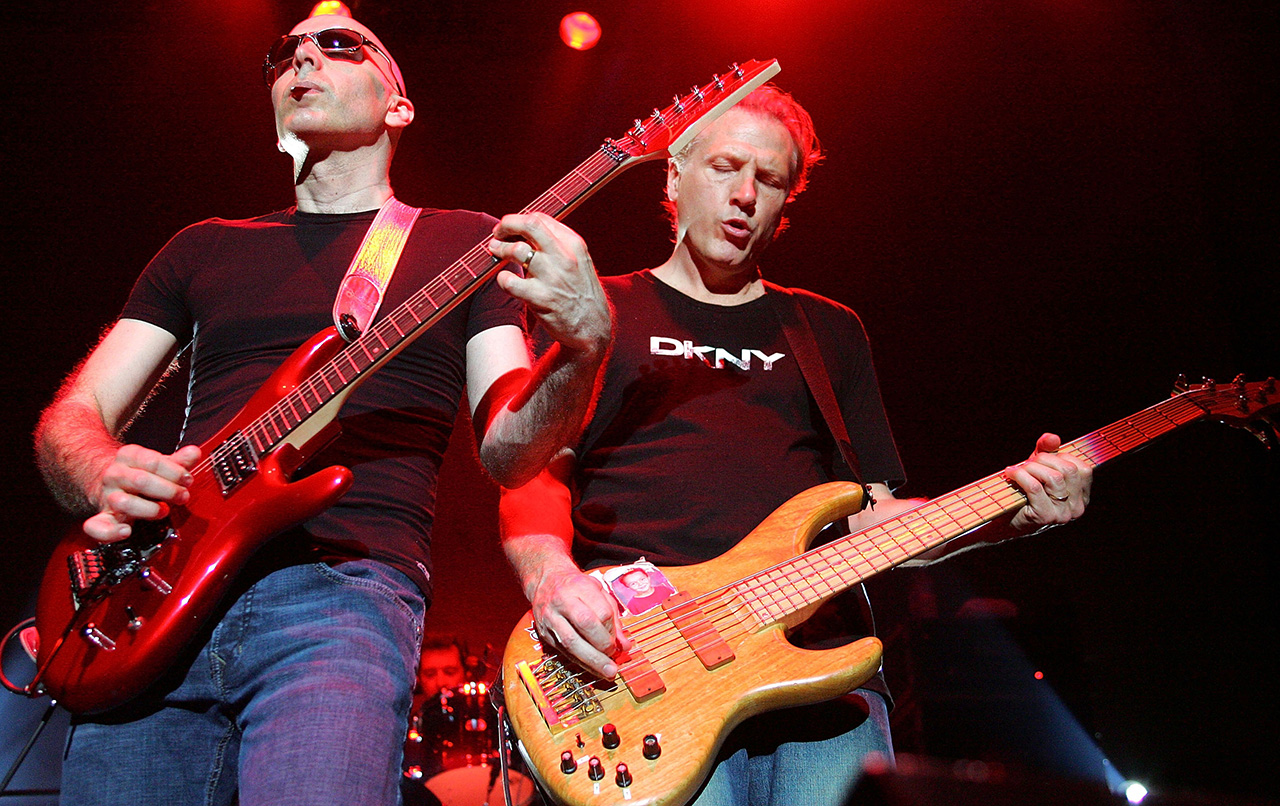
What was the key to supporting people like Brian Wilson, Steve Perry and Peter Frampton?
“Unlike playing with guys like Joe, Dave and people I’d known for a while, when you get thrown into a one-day session with an artist you don’t know, you pretty much have to be ready for anything. I bring a fretless, two or five strings, a bunch of P-Basses and Jazz Basses and maybe a Hofner or a Rickenbacker, in case they want to try something different.
“I think being versatile in all styles of music is the only survival mechanism for session players. My brother Gregg and I call it ‘music vocabulary.’ You have to spend a lot of time dissecting records – the sounds, the tones and the players who recorded them – to be able to walk in cold and record.”
How did you end up being involved with the recording of the Friends in-show music? And did it shock you that it blew it up the way that it did?
“Never in a million years did I think that doing those once-a-month Friday Friends sessions would turn into the highest-paying gig I’ve ever had! We’d start recording at 10 o’clock and make up music on the fly in five-second clips; sometimes longer, sometimes shorter.
“Our friend Michael Skloff was the musical director. We had tears in our eyes because it was just one big party – no stress, just a real blast to do. Doug Ryder is an amazing engineer, and he’d get the sounds instantly.
“I’d show up at 9.45, and we’d go until 1.00, taking time to eat in between. I’d try a different bass every session, although usually, for things like that, I’ll come in with a five-string that I know the engineer isn’t going to have to work on. It just sounds good right when you plug it in.
“I used my Music Man StingRay five-string a lot, and I had a Bossa five-string as well as my Bongo Bass. Truly one of the best gigs I've ever had!”
Engineers tell me that it’s not the bass that makes the sound, but the player’s hands
You toured with Elton John for over a decade. What was he like?
“Elton probably only said two things to me in 13 years about wanting me to do something differently. On Take Me to the Pilot, he asked me to play a little bit simpler, and on in the jam section of Rocket Man he did the same. Other than that, it was free rein for everybody.
“I was the nearest person to him on the stage, so he’d look at me and play something like he was challenging me to play back at him. His love for music humbled me – when I started with him, I was kind of falling out of love with music in general. To see someone like Elton love music so much kind of woke me up from my slumber.”
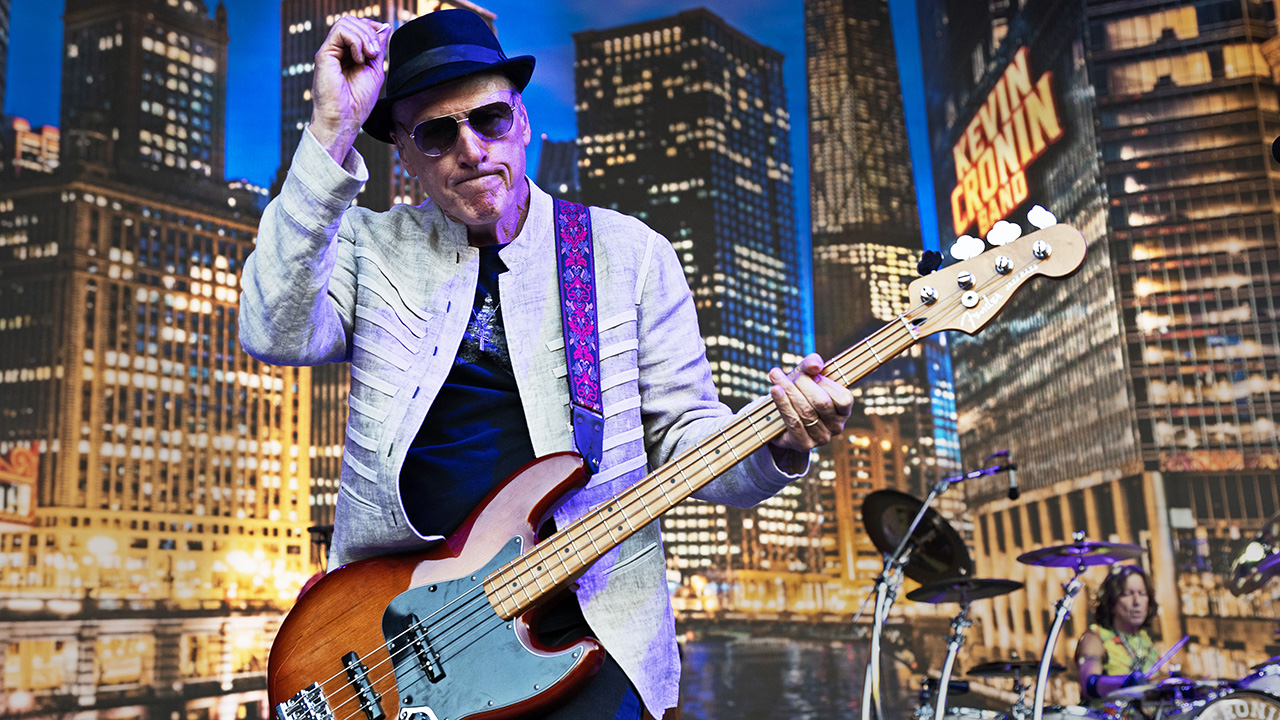
What was your staple rig with Elton?
“I played the Music Man StingRay basses exclusively, all five-strings, and I had a rack and a cabinet, but basically they used the direct sound. Matt Herr is an amazing soundman; he always pumped the bass with that band. My fingers would get blisters every night just because it was fun to play again!”
What inspires you as a bassist today?
I saw the Bob Dylan movie and instantly bought an acoustic guitar and a capo, and wrote 10 songs in that vein
“I love that so many great bass players can make the same bass sound completely different, just by the way they use their hands. Engineers tell me that it’s not the bass that makes the sound, but the player’s hands.
“I get inspired by hearing acoustic upright players make a piece of wood sound like a vocalist. I love the sound of a fretless when it's played in tune – which is something I’m working on feverishly.
“And I love bass players that play whatever’s right for the song, no more, no less. That’s why I show up at a session with eight or nine basses – I think the bass tone sets the overall sound for a song.”
What’s next for you?
“I’m looking forward to going home and staying for a while, and diving into a couple of records I’ve been working on. One is a straight-ahead jazz record, where the bass is playing all the melodies and I’m singing along with them, like George Benson.
“I was listening to all my old bass solos and figured I wanted to try some new stuff, so I started singing solos and learning them on the bass, which completely changed my life. If I can play what I hear in my head and play what I’m singing when I’m bopping around, I think I’ll be a much better player.
“After I went to see the Bob Dylan movie, I came home and instantly bought an acoustic guitar and a capo and wrote 10 songs in that vein. That’ll probably come out at the beginning of 2026.”
- The Squirts’ III is out now via Bandcamp.
Andrew Daly is an iced-coffee-addicted, oddball Telecaster-playing, alfredo pasta-loving journalist from Long Island, NY, who, in addition to being a contributing writer for Guitar World, scribes for Bass Player, Guitar Player, Guitarist, and MusicRadar. Andrew has interviewed favorites like Ace Frehley, Johnny Marr, Vito Bratta, Bruce Kulick, Joe Perry, Brad Whitford, Tom Morello, Rich Robinson, and Paul Stanley, while his all-time favorite (rhythm player), Keith Richards, continues to elude him.
You must confirm your public display name before commenting
Please logout and then login again, you will then be prompted to enter your display name.





